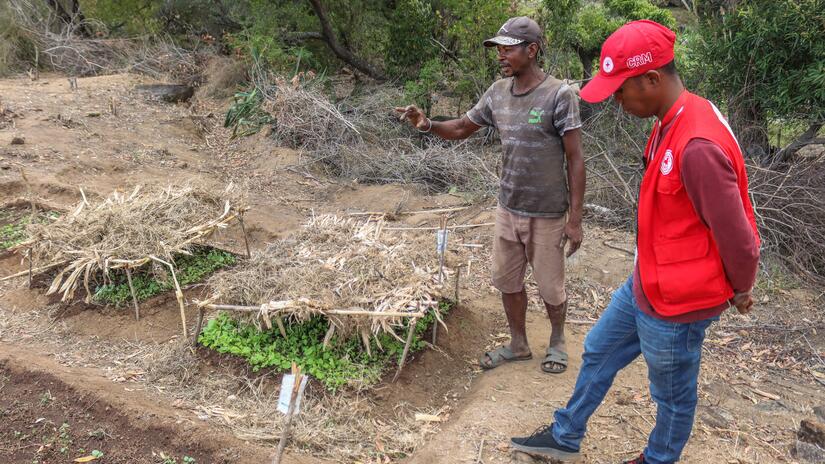Southern Madagascar depends on rain-fed agriculture, but recurrent and prolonged drought for the past 20 years is having a devastating impact on access to food for communities.
The Commune of Ambatoabo, Anosy region is no longer the rice provider for the main town due to unfavourable climate conditions. This is a consequence of El Niño which has caused a rainfall deficit and led to a reduction in agricultural productivity, loss of seeds and the deterioration of crops. The Malagasy Red Cross has been implementing a Disaster Relief Emergency Fund (DREF) operation in this locality from December 2020 and is now leading recovery activities.
Through the interventions of the Malagasy Red Cross in the Commune of Ambatoabo with the support of the IFRC and partners, the focus has been put on resilient and community-based agriculture, where fruits, local trees and anti-erosive trees have been prioritized. While seeds, tools and technical support are provided, local-based Red Cross volunteers are in charge of mobilizing the community around the nursery trees and vegetable garden activities, and follow-up on the sites.
Now, 33 vegetable garden managers and 22 nurserymen are active in the management of these sites. They were trained on nursery installation, reforestation (planting and digging), and land management, as well as technical training on sowing, planting, and pricking. The local-based Red Cross volunteers acquired the necessary skills to look after the sites and to guide the communities. Also underway is training in crop protection against diseases and insects, using biological techniques.
Daniel Aristide, a 40-year-old farmer, is part of this pool of local-based Red Cross volunteers. Taking part in this operation is a way of learning efficient and adapted techniques of cultivation but especially to “Contribute at his level to the development of his commune”. He also added, “Up to now, three tree nursery sites have been set up with 11,000 plants each. But the goal is to make communities from each locality of Ambatoabo set up and look after their own sites; that is why they come here to learn the techniques first."
--
Click here to learn more about the IFRC's Disaster Relief Emergency Fund (DREF).





